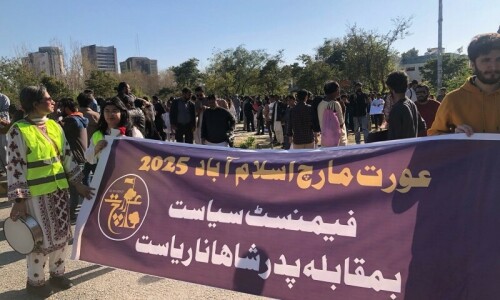LAHORE: The country has produced 34 per cent less cotton this year as compared with the crop yield last season, reveals data with Pakistan Cotton Ginners Association (PCGA).
The final figures for the crop year 2022-23 show that Pakistan produced 4,912,069 bales, the lowest in around four decades, of cotton against 7,441,833 in the 2021-22 season, a year-on-year decline of 2,528,764 bales or 34pc loss.
It means the textile industry will have to import around 10 million bales to satiate its annual hunger for 15m bales. However, mill consumption in the year 2022-23 has also been reported at 8.8m bales, the lowest in over 20 years, mainly because of severe import financing issues.
Market sources say the textile mills have so far signed import agreements for 5.5m bales, whereas they have purchased 4,605,449 bales from the local market. Last year, the mills had bought 7,332,000 bales from the domestic market.
Ginners say they are still holding 301,720 bales in their stocks against last year’s inventory of 93,833 bales.
Flash floods and heavy rains during last year monsoon that devastated large swathes of the agricultural land in the country, particularly in Sindh and Balochistan provinces, are blamed for the massive drop in cotton arrival.
Interestingly, despite a strong demand in international markets, only 4,900 bales of white lint could be exported this year against the previous year’s figure of 11,000 bales, a fall of over 69pc. The main destinations of Pakistan’s raw cotton are the Philippines, Italy, Bangladesh, Greece and France.
Province-wise, Punjab registered over 32pc year-on-year decline in output as it produced 3,033,050 bales this season against 3,928,690 bales last season.
Sindh reported over 46pc year-on-year loss in yield as the lint production in the province this year stood at 1,879,019 bales against 3,513,143 bales last year.
Pakistan’s cotton output reached a high of 14.1m bales in the year 2004-05. But it dropped to 7m bales in 2020-21 and about 9.45m bales in 2021-22 as the country’s per acre yield contracted to half of the crop productivity in other countries of the region.
Expressing concern over the continuous decline in cotton production and acreage over the years, a recent meeting of the Economic Coordination Committee (ECC) approved Rs8,500 per 40kg as the intervention price on a summary submitted by the Ministry of National Food Security and Research to attract growers towards the crop.
Pricing
The ministry informed the ECC that in order to draw up a cotton intervention price proposal, consultations were held with all stakeholders including the provincial governments, growers and cotton associations in January and February.
Stakeholders, including the All Pakistan Textile Mills Association, called for pegging the cotton intervention price with the import parity price in line with the policy adopted over the past two years.
The ECC constituted a cotton price review committee with the mandate to review market prices and propose intervention on a fortnightly basis.
Published in Dawn, April 4th, 2023














































